At Baltimore Church, Two U.S. Presidents Honor Cummings’ Singular Legacy
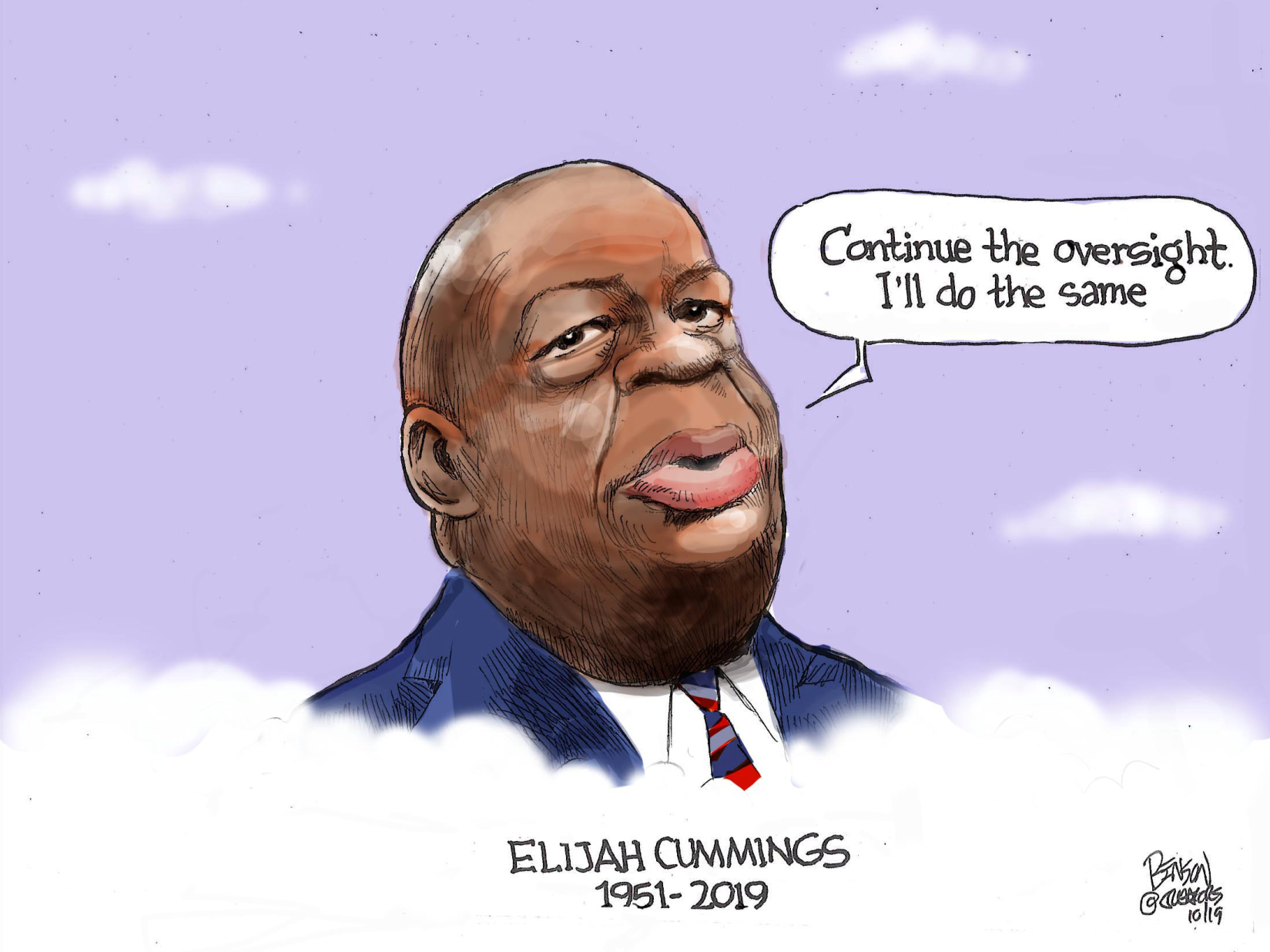
Before he was laid to rest on Friday, the late Congressman Elijah E. Cummings (D) was remembered at a homegoing service in a place that knew him better than any else – the New Psalmist Baptist Church in Baltimore, where he came every Sunday to rest up and regain strength for the battles that would await him in Congress during the week ahead.
It was a ceremony that highlighted both Cummings’ roots – from humble beginnings in a segregated city – and the heights to which he soared in life – a day earlier having been the first black elected official to lie in repose in the U.S. Capitol, atop the same catafalque where President Abraham Lincoln had been honored more than 150 years ago.
Cummings died last week at the age of 68.
Maya Rockeymoore Cummings, the congressman’s widow, said she was deeply touched by the week of glorious tributes paid to her husband, especially that he was honored in the Capitol.
The personal attacks lobbed against Cummings and the city of Baltimore in the last months of his life made his job harder and hurt him deeply, she said.
“I felt very strongly that they were trying to tear him down, and we needed to make sure that he went out with the respect and the dignity that he deserved,” Rockeymoore Cummings said. “This was a man of the utmost integrity.”
Every detail of the Friday service was planned by Cummings before his death, Bishop Walter Thomas said.
Dignitaries lined the front row, notably former Presidents Clinton and Obama. Former vice president Joe Biden and former secretary of State Hillary Clinton sat in the front row, as well as civil rights icon Rep. John Lewis (D-Georgia), Maryland Gov. Lawrence J. Hogan Jr. (R) and members of the Maryland congressional delegation.
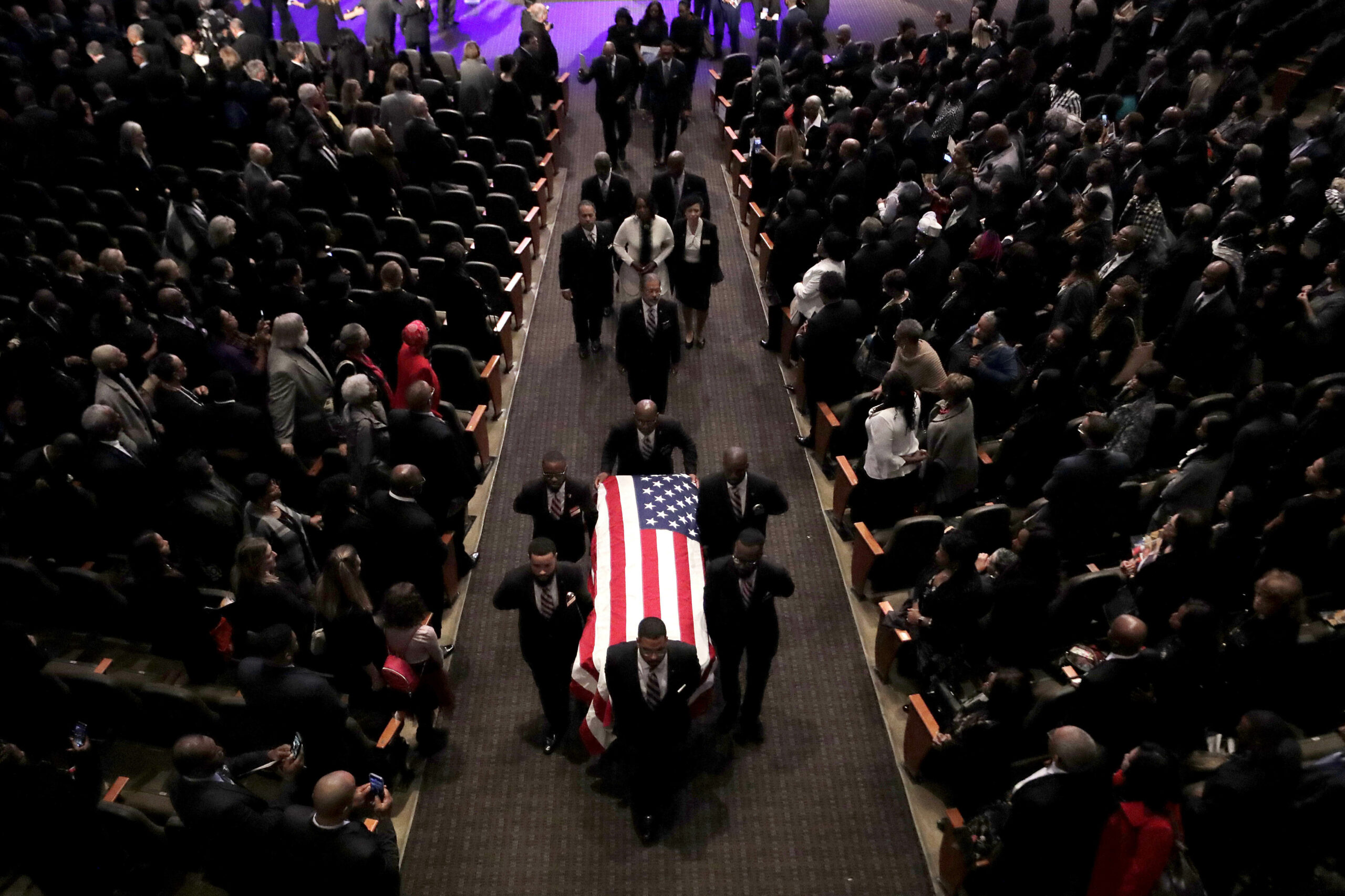
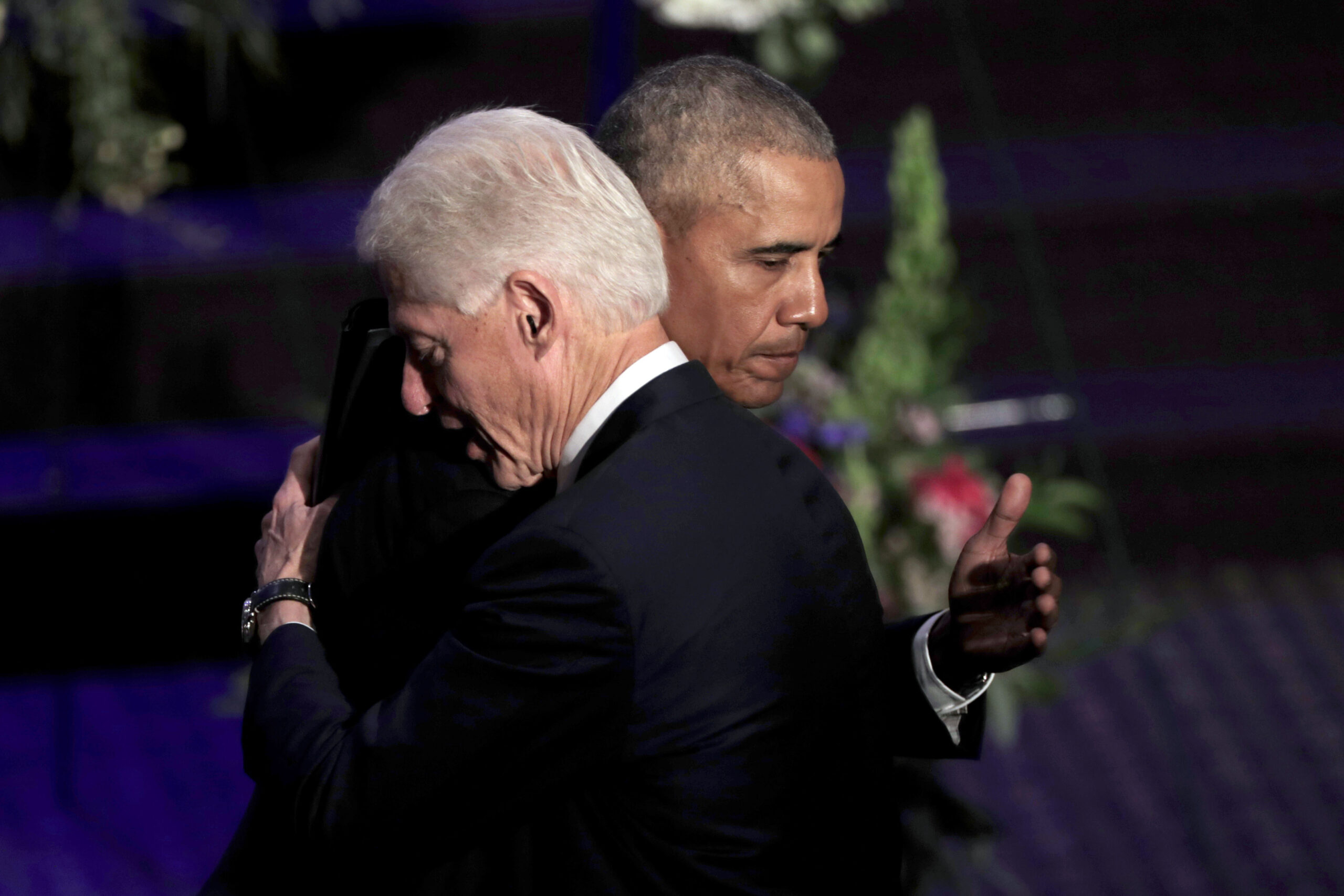
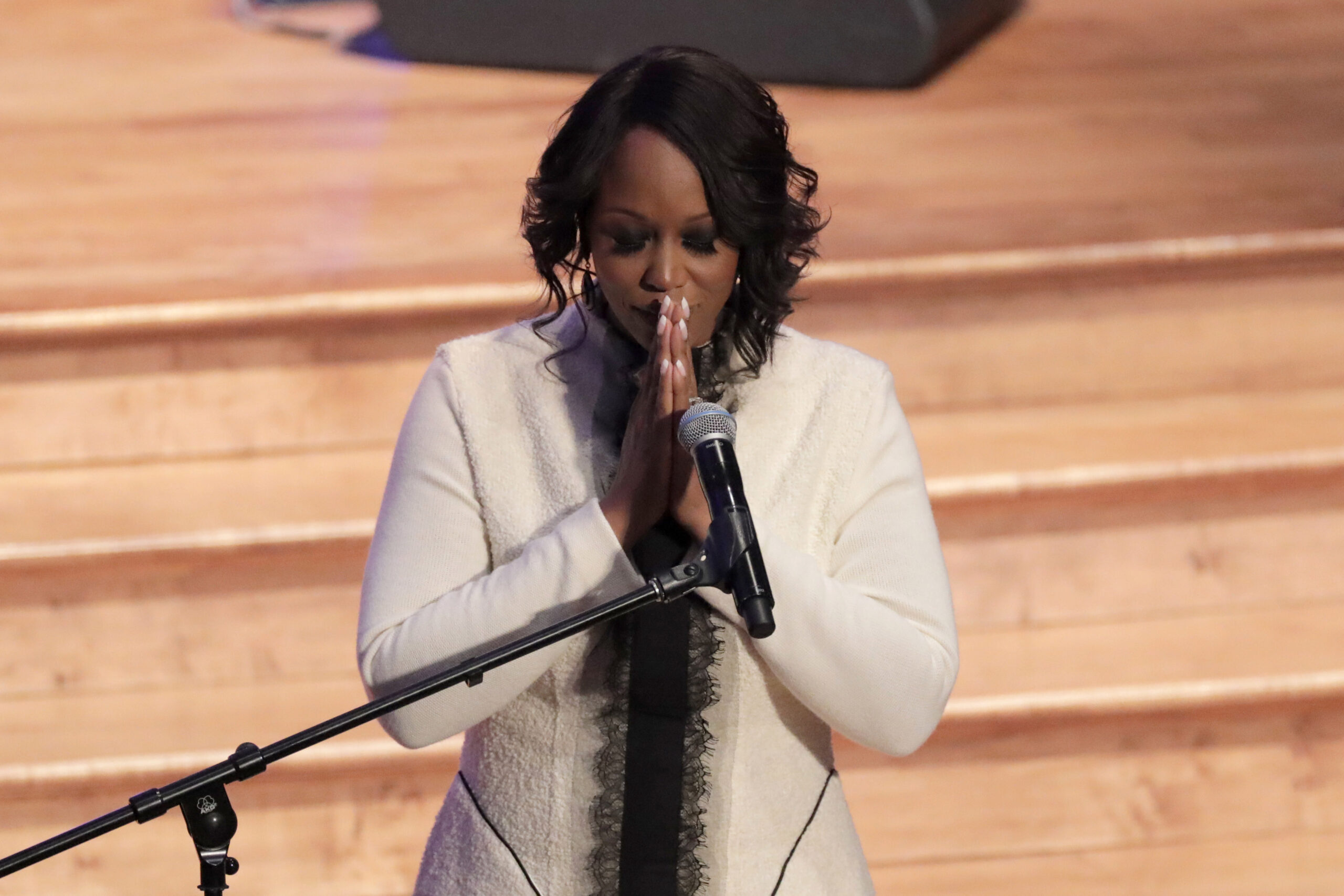
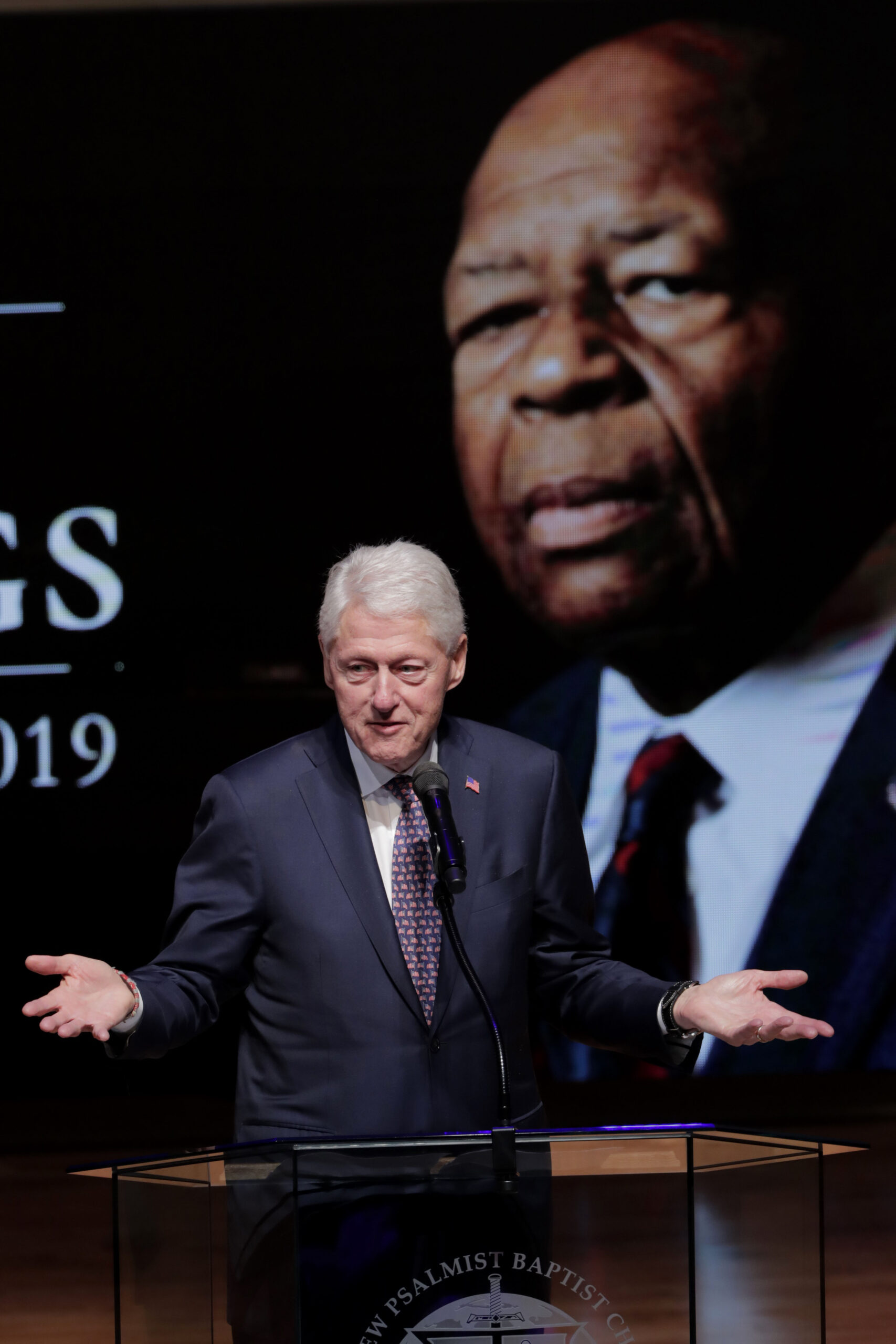
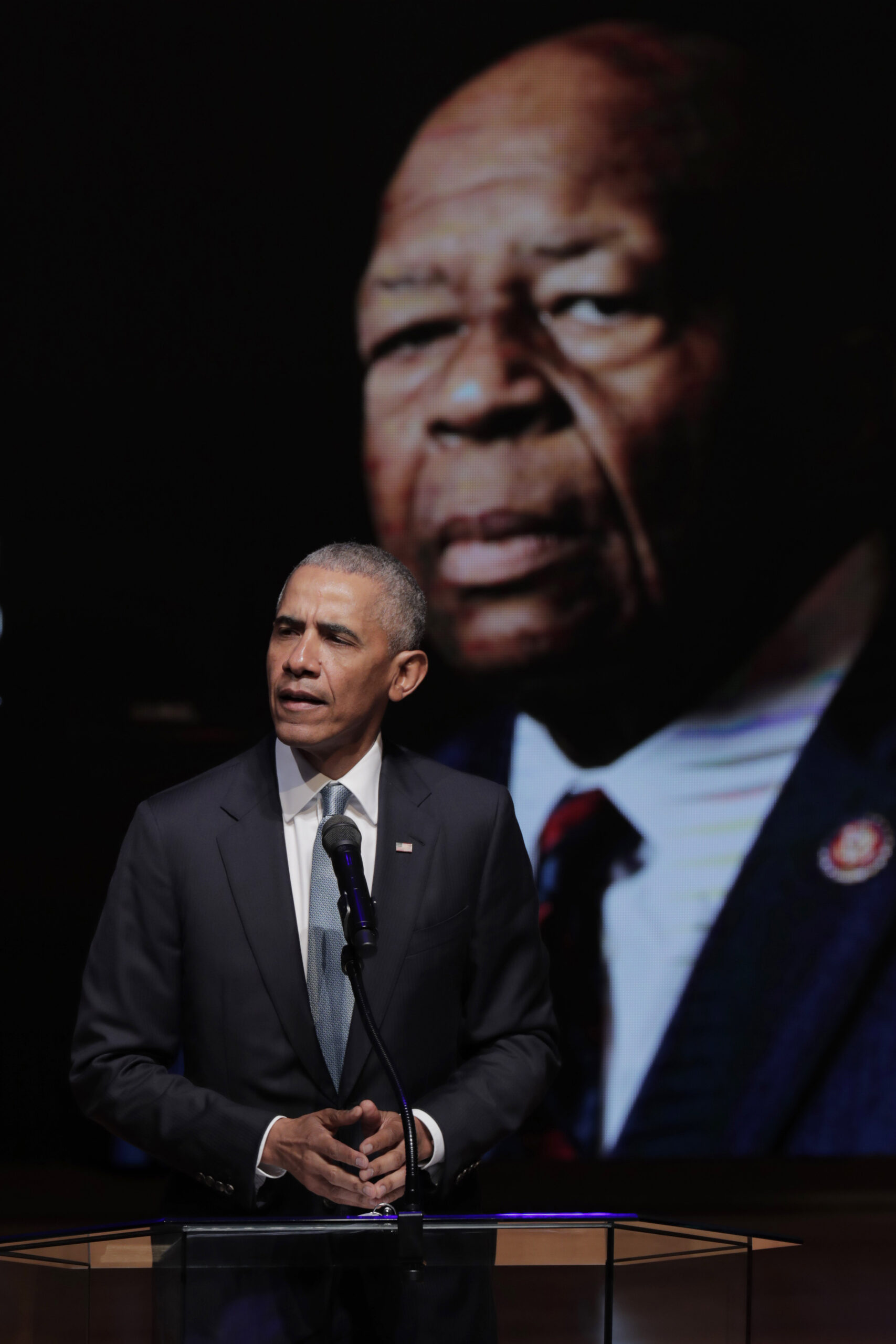
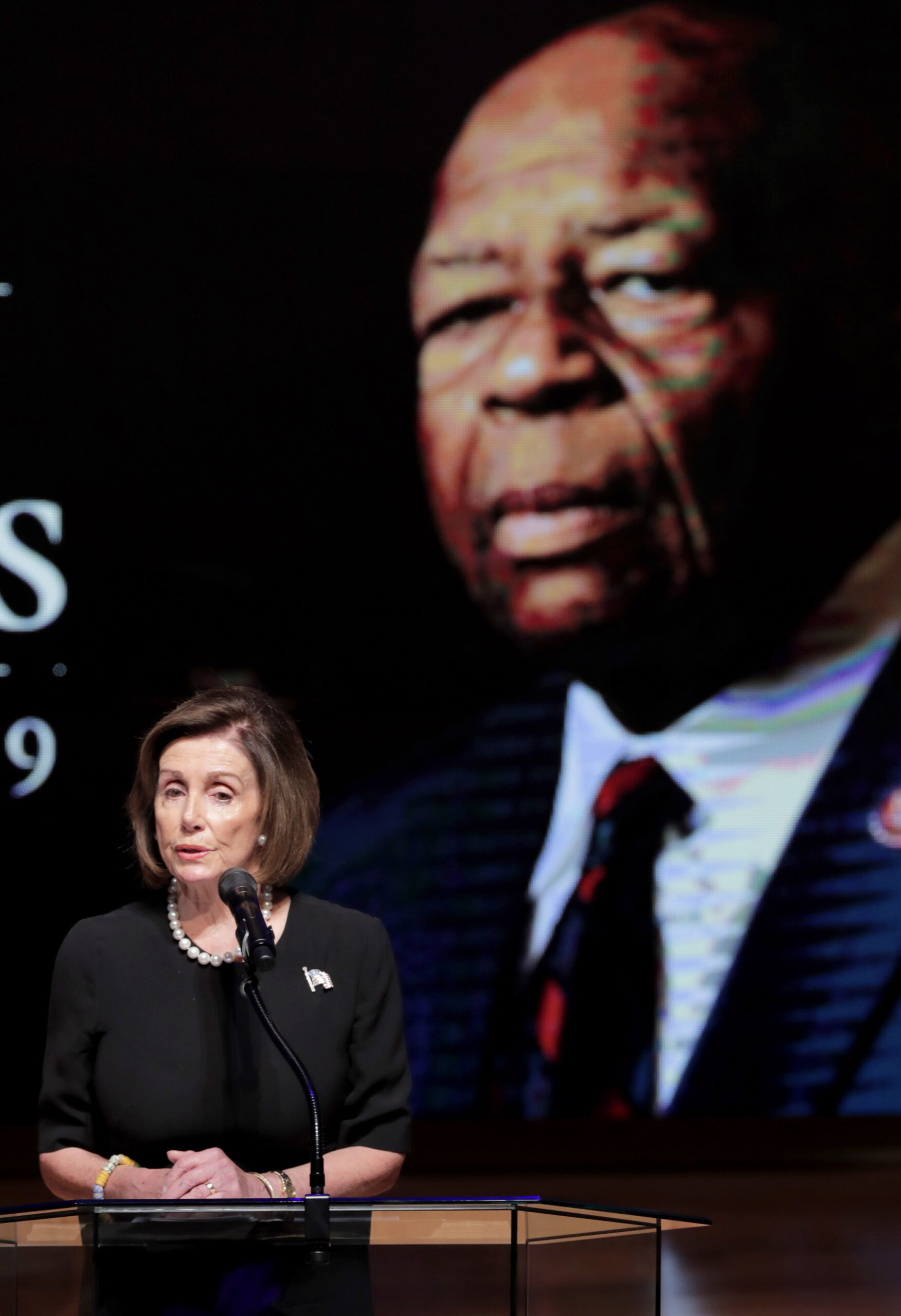
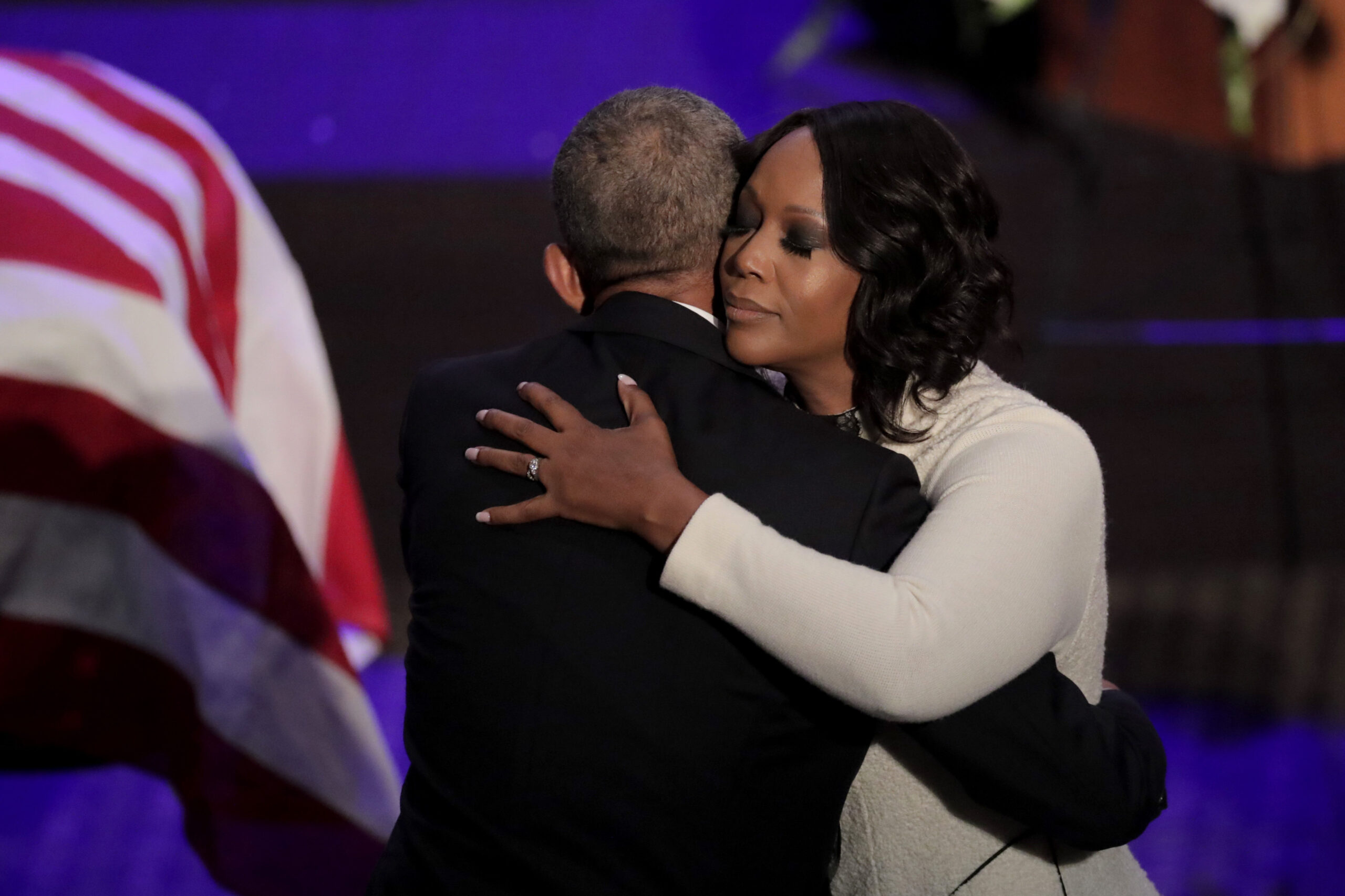
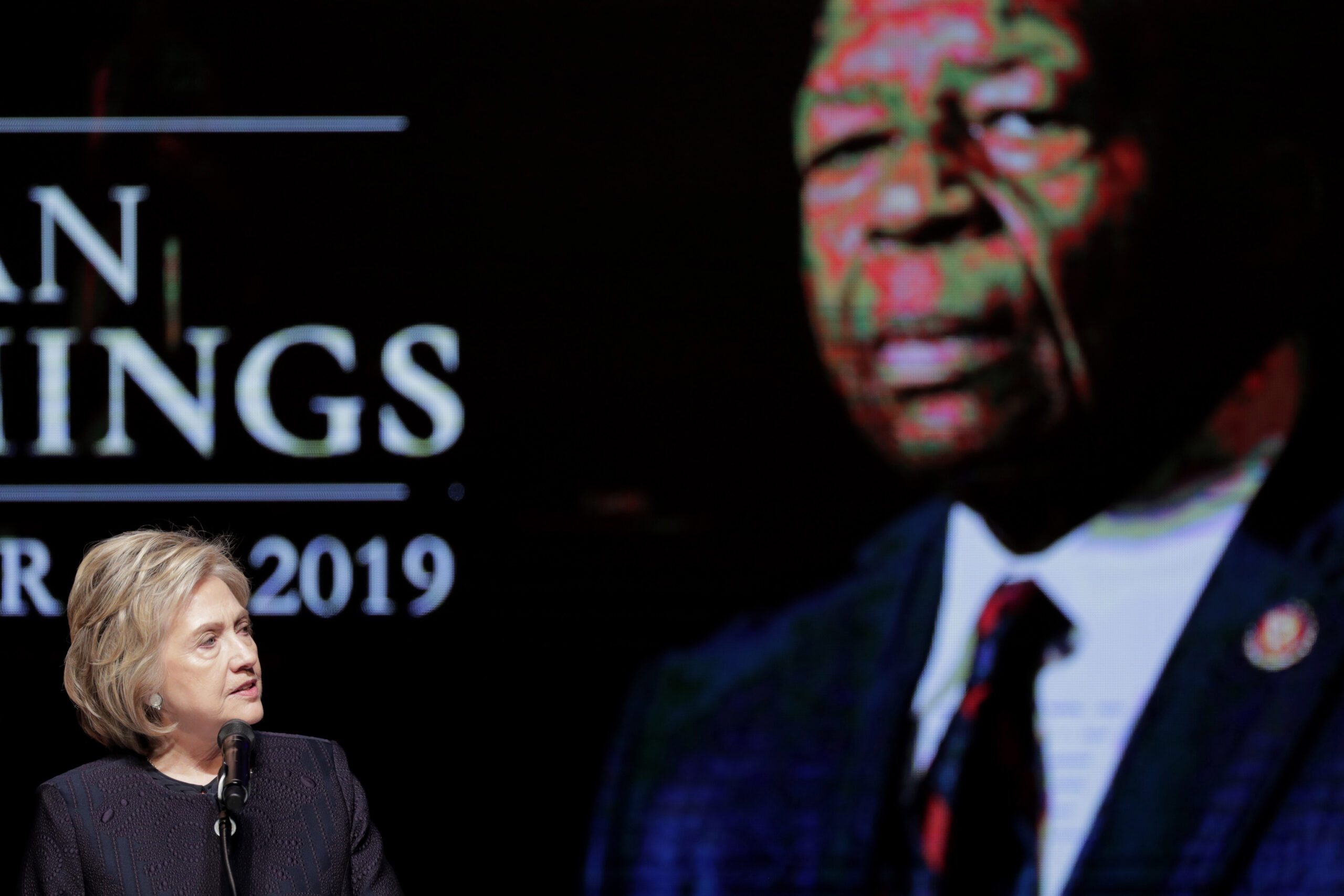








Many in the room had been mentored by Cummings or sought his advice during difficult times – even Obama.
“There is something about his voice that just made you feel better,” Obama said.
He told the crowd that it now falls on them to continue to do the work that Cummings had fought so many years for.
“He would remind all of us that our time is too short not to fight for what’s good, and what is true and what is best in America,” Obama said.
Bill Clinton noted that Cummings – despite his own deeply held beliefs – was a genuine person and saw that in others.
“No matter how hard he fought and how passionately he argued, he tried to treat everybody the way he wanted to be treated, the way he thought Americans should be treated,” Clinton said.
Homage was paid to Cummings’ parents – Ruth and Robert – who as sharecroppers picked strawberries and tobacco, then moved to Baltimore to work cleaning homes and in factories. Respect was doled out for the man that they – and the city of Baltimore – shaped Cummings to be.
“He was taught to work hard, play by the rules, love your country, cherish your faith, respect your elderly,” said Kweisi Mfume, former congressman and head of the NAACP. “It was what [his parents] poured into him that began to shine through him for the rest of his life. It was an uncompromising understanding of who he was and whose he would forever be.”
Cummings was remembered by his daughters as tender-hearted and always making certain they were confident in their blackness, their beauty, their brilliance and their potential.
Cummings fought for his own educational achievements, studying on his own at Enoch Pratt Library late into the evenings to rise out of the special education courses where he was placed in elementary school. His brother, James, recalled advice that Cummings – known in the family as Bobby – gave him at a young age: to attend an all-boys school “because there were no distractions.”
Larry Gibson, a lawyer and political strategist whom Cummings considered a mentor, spoke of the congressman’s tenacity and impatience for change – even in his school years.
They met when Cummings was a senior at Baltimore City College. Then 18 years old, Cummings was lobbying to integrate the school’s Hall of Fame, which included only white graduates at the time.
Cummings nominated Gibson, at the ripe old age of 27.
Gibson said his only claim to fame at the time was that Mayor Thomas D’Alesandro III, who died Sunday, had appointed him to the city’s school board.
Cummings and Gibson met at the Hall of Fame ceremony in 1969 and stayed close ever since.
“As his health faded, he continued fighting for justice with the same persistence as that 18-year-old student who in 1969 was determined to integrate his high school’s Hall of Fame,” Gibson said. “…He now enters America’s Hall of Fame.”
The gospel singer Bebe Winans, whom Cummings loved to listen to, filled the sanctuary with an emotional performance of “Stand.”
Rep. Marcia Fudge (D-Ohio) and Sen. Elizabeth Warren (D-Mass.) read scripture.
Hillary Clinton compared the congressman to his Biblical namesake.
“Like the prophet, our Elijah could call down fire from heaven,” she said. “But he also prayed and worked for healing. He weathered storms and earthquakes but never lost his faith. Like that old testament prophet, he stood against corrupt leadership.”
U.S. House Speaker Nancy Pelosi (D-Calif.), who called Elijah her “brother from Baltimore,” recalled the Old Testament tradition of leaving a seat at the table for the prophet Elijah, for he might just show up.
“But our Elijah always made a seat at the table for others,” Pelosi said. “He made a seat at the table for children who needed education, for new members of Congress so he could mentor them, for all who wanted to be part of the American Dream.”
Thomas noted that Cummings’ last official act in Congress, where he was chairman of the powerful House Oversight and Reform Committee, was to sign subpoenas for documents related to immigration policies proposed by the White House.
But his real last act, Thomas said, was gathering the powerful, and people from all walks of life, to bring them to church.
Buses and caravans, filled with elected officials from states across the country, the Maryland State House and the halls of power in Baltimore, filled the church’s parking lot. The Secret Service was in attendance, as well as those working in public service.
“Every place of power, Elijah has called them in,” Thomas boomed. “Why did Elijah think you oughta be in church? Why did Elijah think you oughta be in church?
“I tell you why Elijah wanted you in church. Because he found something in church,” the bishop said.
Every Sunday, down in the front row, Cummings, sitting next to his wife, would bring his frailties and then emerge clinging to his possibilities, Thomas said.
He urged the elected officials in attendance to re-ground themselves, remember their roots and think about others who are still struggling.
“Too many in our country are forgetting where they came from and what was instilled in them. We were not taught to be divided,” Thomas said.
Cummings was guided in his life and in his public service, Thomas said, because he never forgot his grounding.
“He spoke for folk who had no voice. Why? Because he grew up having no voice,” Thomas said. “He grew up in a community, in a world, where we were not allowed to do what we can now do.”
“And Elijah said, ‘As God gives me breath, I will speak for folk who can’t speak, I will articulate for folk who cannot articulate,’” Thomas said.




 Creative Commons Attribution
Creative Commons Attribution